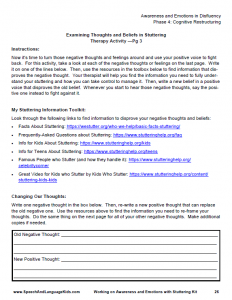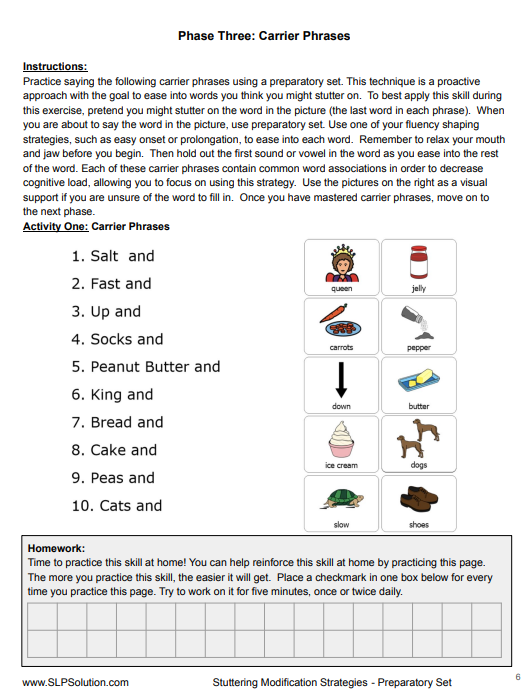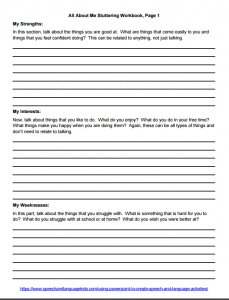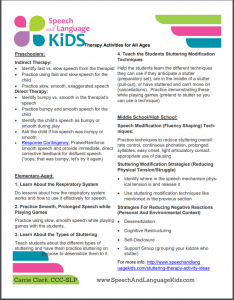Boosting Confidence in Children who Stutter:
Addressing Negative Emotions
Some children who stutter may have negative emotions or reactions related to their stuttering. They may feel conscious of their stuttering and it may cause them to become stressed our upset. Feeling tense or upset about stuttering can actually make it worse. For these children, we can address these negative emotions and help them respond (calmly) to their stuttering instead of react (emotionally). This will help boost their confidence as communicators!
How to Help Children who Worry about their Stutter
The way children feel about their stuttering or disfluencies can affect them greatly. If children feel bad about their stutter or if they are worried that they might stutter, their stutter may get worse. Or, they may avoid doing things they enjoy because of the fear. We can help children who stutter by helping them understand and address their negative emotions related to stuttering. Watch the video above to learn more about helping children with negative emotions related to their stuttering.
Steps to Helping Children with Negative Emotions about their Stuttering:
- Ask and Listen: Don’t assume you understand what they’re going through or how their stutter is affecting them. Ask questions and listen. Don’t judge or jump in to correct them or negate them. Empathize and listen.
- Cognitive Restructuring: Help your client reframe their negative thoughts and beliefs into more empowering ones. Guide them through discovering the truth about their stuttering and how it affects their lives.
- Desensitization: As they are ready, help them overcome fear of stuttering by stuttering on purpose. Start with the least-stressful way possible, such as stuttering to yourself where no one else can hear. Gradually over time, increase the difficulty level. This should be done under the guidance of a trained speech-language professional.
- Self-Disclosure: Help your client find empowering ways to talk about his/her stutter that feel good to him/her. Help them build a script for what they can say when they want to tell others about their stutter.

About the Author: Carrie Clark, MA CCC-SLP
Hi, I’m Carrie! I’m a speech-language pathologist from Columbia, Missouri, USA. I’ve worked with children and teenagers of all ages in schools, preschools, and even my own private practice. I love digging through the research on speech and language topics and breaking it down into step-by-step plans for my followers.
Connect with Me:












The listening portion is so important!! Thanks for sharing this
It’s crucial to pay attention throughout this part. I appreciate you sharing this.
I do believe all of the ideas you’ve offered for your post.